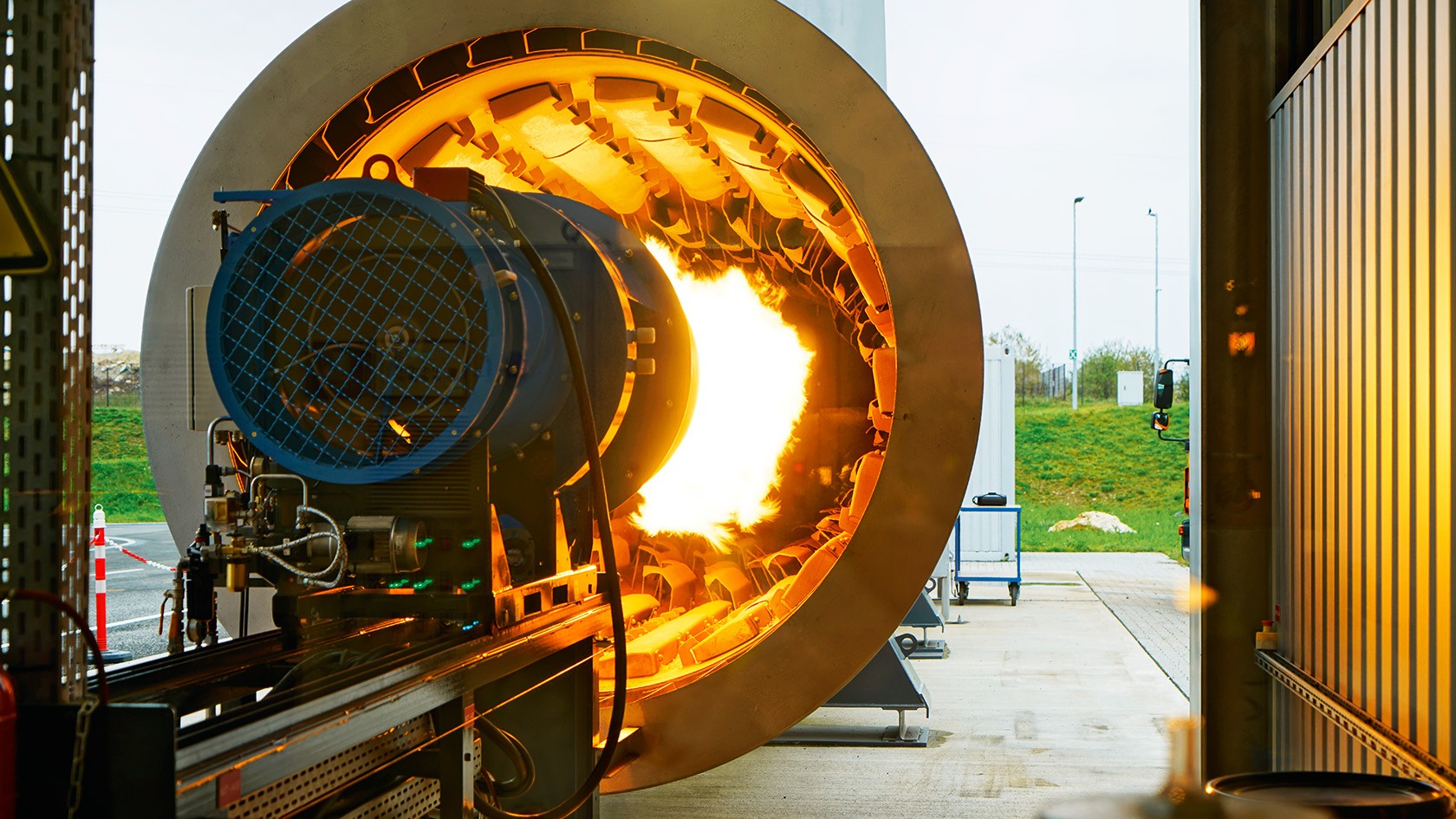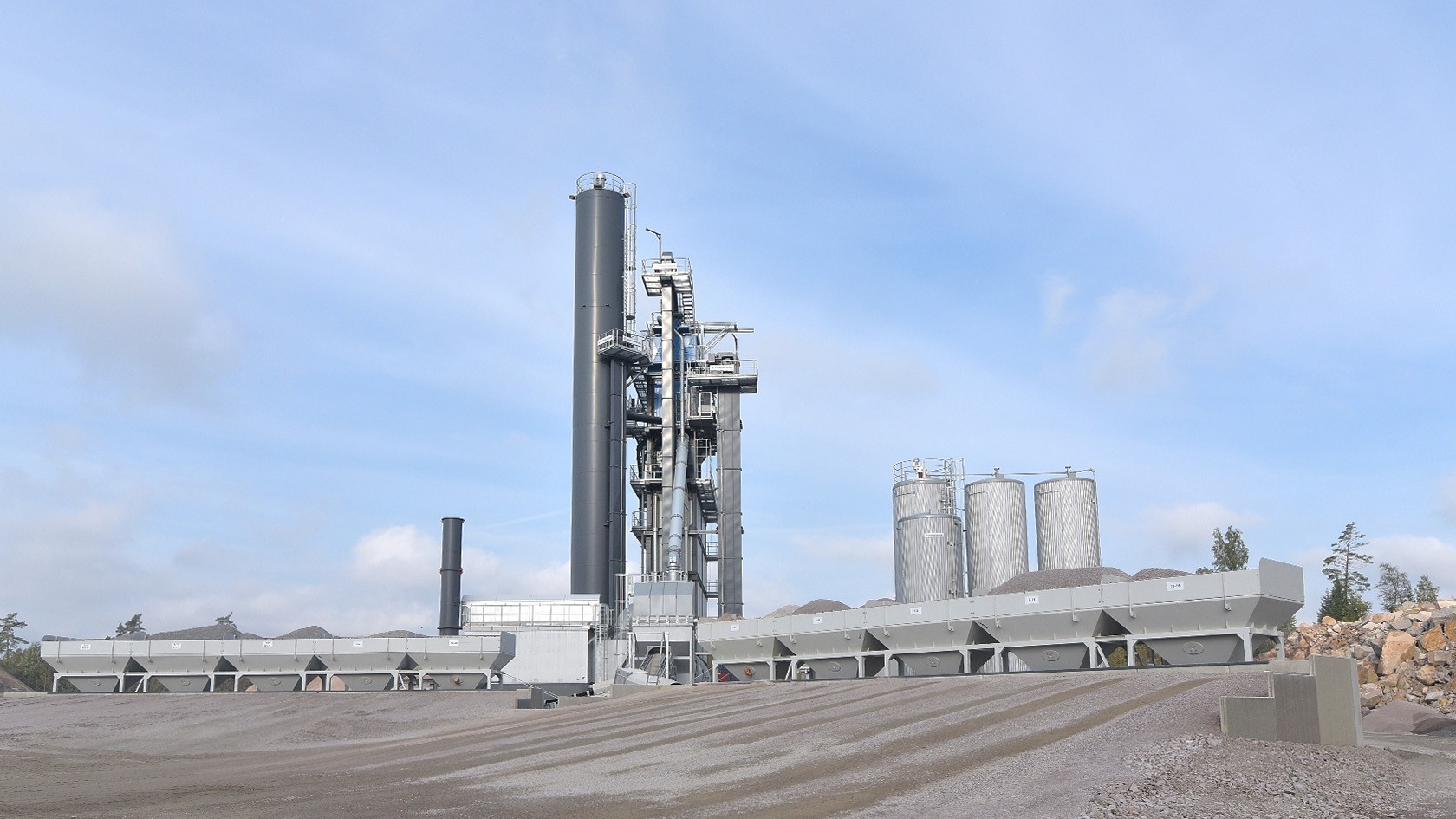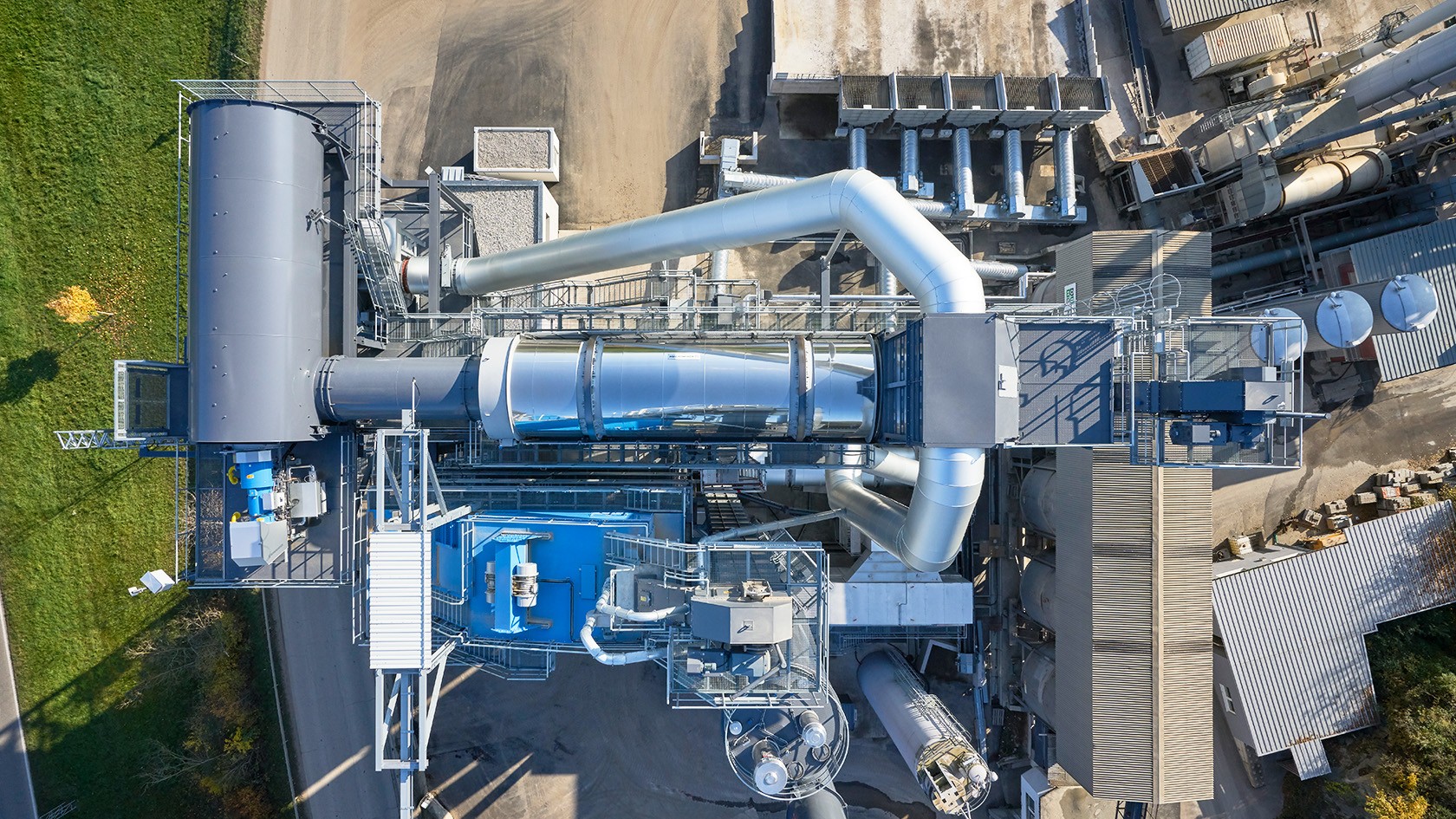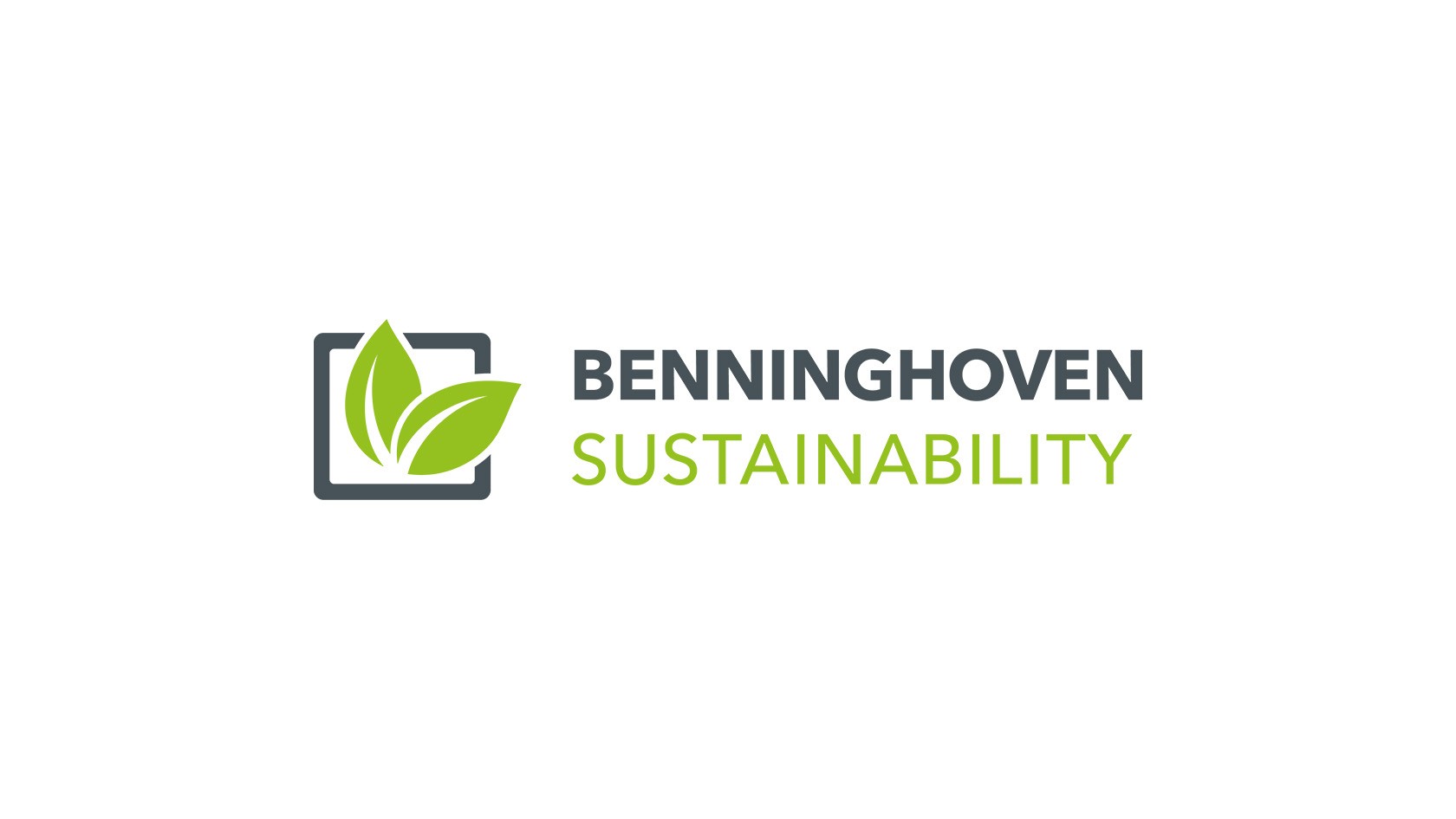

Environmentally-friendly asphalt production with energy from biomass
Advanced burner technology plus a wide choice of fuel offers the greatest potential for operating an asphalt mixing plant so it is as environmentally friendly and sustainable as possible. As always, Benninghoven has an innovative solution to hand. The company’s engineers have now achieved market readiness for a technology that enables the use of Biomass to Liquid (BtL) fuels to operate the EVO JET burner that is used to dry and heat the virgin mineral and recycled material used in Benninghoven plants. These kinds of biofuels can be made from plant waste like straw, or from wood or energy crops such as maize and oilseed rape. The use of such renewable energy sources works to future-proof asphalt mixing plant operations while also achieving greater independence from conventional (fossil) fuels.

“By offering the sustainable option of powering an EVO JET burner with BtL, we’re giving our customers much greater flexibility as well as fuel security for the future.”
Steven Mac Nelly, Head of R&D
Benninghoven
Into a sustainable future
While businesses might not have paid any attention to where their energy comes from before, those times are now fast coming to an end. Many markets are now preparing to exit from coal, while systems running on oil are also increasingly subject to tighter regulation and wide-ranging restrictions.
All of which offered a good opportunity for Benninghoven’s development engineers to look at designing the EVO JET multi-fuel burner to handle another, more future-proof fuel: Biomass to Liquid. For the very first time, this innovation now allows asphalt mixing plant operators to use Benninghoven burners – a long-standing favorite in the industry – with a fuel made from renewables.
By choosing the EVO JET “BtL Burner”, businesses not only achieve greater independence from the commodities market, by adding another fuel option alongside coal, oil and gas, but also act to ensure the future viability of their asphalt plant.


“We want to be a trend-setter here. And the innovative technologies from Wirtgen Group allow us to do just that. The BtL fuel option offers us a great opportunity to make our business even cleaner.”
Patrik Magnusson, Production Manager
Asfaltbolaget Sverige AB
Prototype easily passes endurance testing with BtL from wood
During the development phase, Benninghoven installed a BtL-capable EVO JET multi-fuel burner in an asphalt mixing plant operated by Swedish roadbuilding contractor Asfaltbolaget Sverige AB. Since the BtL fuel is fairly viscous, it is first heated to the right application temperature before being transported in heated and insulated piping. Asfaltbolaget is using BtL that has been produced from wood. This regenerative energy source is being supported and funded by the Swedish government.
With its innovative new fuel, Asfaltbolaget is clearly showing how it is focused on the future and the need to improve. “We want to be a trend-setter. And the innovative technologies from Wirtgen Group are an important part of this strategy. They help us to work efficiently while keeping our high quality standards. And the BtL fuel option offers us a great opportunity to make our business even cleaner,” explains Production Manager Patrik Magnusson.
Benninghoven helps with burner configuration for BtL
In the case of Asfaltbolaget, the challenge in terms of process engineering was the fact that wood is a natural starting material whose chemical composition can vary. These variations then affect the final BtL product. This would, in turn, have meant greater operating effort, because burner parameters would have required repeated adjustment.
To ensure burner parameters could be initialized properly at Benninghoven’s factory, the customer therefore sent a shipment of its fuel in a stainless steel container to Germany. Benninghoven ran tests on the fuel and adjusted the burner for optimal operation: these values were then applied 1:1 back in Furuby in southern Sweden.

Electrically powered mobile crushing and screening equipment from Kleemann: Asfaltbolaget runs these on-site to provide the mineral starting materials. These are then fed into a Benninghoven TBA 3000 asphalt mixing plant to produce asphaltic mixtures.
From wood to liquefied biomass (BtL): how it works.
Green technology for a competitive edge
With the EVO JET burner for BtL, Benninghoven has once again underlined its leading role in the market for green technology. Recycling tech that achieves the world’s highest feed rate into the mixing process for reclaimed asphalt — some 90 + X% – is also a Benninghoven innovation. Benninghoven refers to this as a recycling drum with hot-gas generator using a counterflow process.
Learn more about Benninghoven’s best-in-class hot-gas generator recycling systems.








